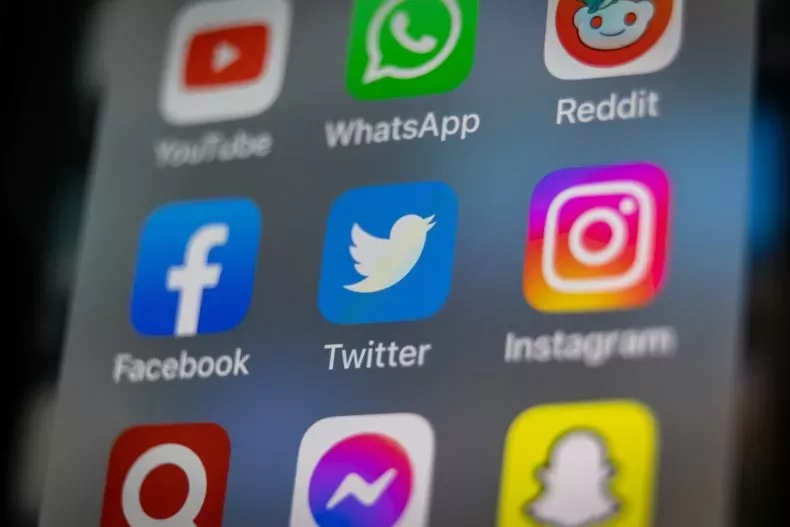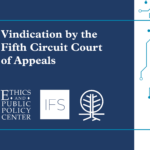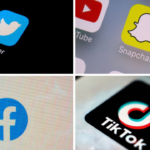
Published February 23, 2023
Big Tech and America’s parents want different things for our kids. A new report co-released last week by the Institute for Family Studies (IFS) and the Ethics and Public Policy Center (EPPC)—titled “Five Pro-Family Priorities for the 118th Congress and Beyond“—makes that indisputably clear.
In a survey by YouGov of more than 2,500 American adults on a host of family policy preferences, EPPC fellow Patrick T. Brown found that 80 percent of parents support requiring parental permission before a minor opens a social media account. That’s a huge number, but only a touch larger than the 77 percent who support giving parents administrator-level access to what their kids are seeing and doing online.
Both of these proposals receive strong support from parents across the political spectrum—Democrats, Republicans, and independents. From a purely electoral perspective, lawmakers enacting policies that empower parents’ authority over their children’s social media use is a winning issue.
Even setting aside the popularity of these proposals, lawmakers must act for the sake of America’s children, to shield them from the unprecedented access that massive tech corporations have to their brains—access that has fostered little other than disaster. America’s teens are suffering, and, as this report reveals, their parents are crying out for help.
On Monday, February 13, the Centers for Disease Control and Prevention released a shocking report. It found that, as The New York Times put it, “Nearly three in five teenage girls felt persistent sadness in 2021…and one in three girls seriously considered attempting suicide.” While there are many factors contributing to this crisis in teen mental health, it’s no secret that addiction to smartphones and social media is a principal driver. How much worse must it get before lawmakers stand up and say enough is enough?
Fortunately, there is a growing movement around the country of elected officials seeking to find creative ways to protect children online, to keep the most lurid content on the internet away from teens and to give parents more power over what their kids see and do online.
In Louisiana, for instance, the state legislature recently passed a law that requires users to prove they are over the age of 18 to access pornographic websites. Libertarians are up in arms. But that shouldn’t dissuade Louisiana, because the IFS/EPPC report finds that parents are overwhelmingly on the state’s side. Indeed, 86 percent of parents agree that “it’s too easy for kids to find sexually explicit material online.” The law’s effectiveness has been initially limited, as those insistent on retaining access to porn have exposed its weaknesses and loopholes. But follow-up legislation could address the holes—provided the political will remains.
In Utah, Governor Spencer Cox has taken direct aim at Big Tech, declaring in January that he wanted to sign legislation giving parents greater control over the social media accounts of their teens, including by requiring age verification. “We are putting you on notice,” he said before a packed room, with representatives of Meta (the parent company of Facebook) in the audience. “You have some options. You can fight, and that’s fine. We’re ready for the fight. Or you can join us and be part of the solution.
Governor Cox’s strong words are warranted and welcome, but as you might imagine, Big Tech chose to fight. Even though a strong bill passed cleanly through committee, which would have banned the use of social media by kids under the age of 16 and requiring Big Tech to verify its users’ ages, following pressure from NetChoice—a lobbying firm that represents Meta, Google, TikTok, Twitter, and other online giants—the version that eventually passed the Utah House was watered down, stripped of both provisions. The final bill instead includes a requirement for parental consent in order for minors to make online accounts and a private right of action designed to make it easier for parents to sue Big Tech for harms caused by social media.
Parental consent and a private right of action are good steps, but, on balance, without more robust preventative provisions, this is a win for Big Tech. Their business model is built upon getting access to kids while they’re young and addicting them so they can be molded into ready consumers, to be bombarded with ads ad infinitum. These companies are in a race to the bottom. The threat of a few intrepid families in Utah finding the time and wherewithal to sue would, even if successful, do little to threaten their bottom line. It will be a big hurdle for parents to amass sufficient evidence of damages caused by social media to bring a successful suit.
There’s still time for Utah to take a stronger stance, as the bill is still under consideration in the state senate. The governor wants it, parents want it, and teens desperately need it. The only thing standing in the way of lawmakers—aside from the slippery, soothing whispers of lobbyists—is a lack of will. Hopefully, these survey results can help steel their spines and give them the courage they need to revise the bill. Other states should follow in Utah’s bold footsteps in taking on Big Tech, for the sake of the next generation of Americans. The parents of America need and want their help.
Clare Morell is a policy analyst at the Ethics and Public Policy Center, where she works on the Technology and Human Flourishing Project. She worked in the White House Counsel’s Office and the Justice Department during the Trump administration.
Clare Morell is a Senior Policy Analyst at the Ethics and Public Policy Center, where she directs EPPC’s Technology and Human Flourishing Project. Prior to joining EPPC, Ms. Morell worked in both the White House Counsel’s Office and the Department of Justice, as well as in the private and non-profit sectors.











